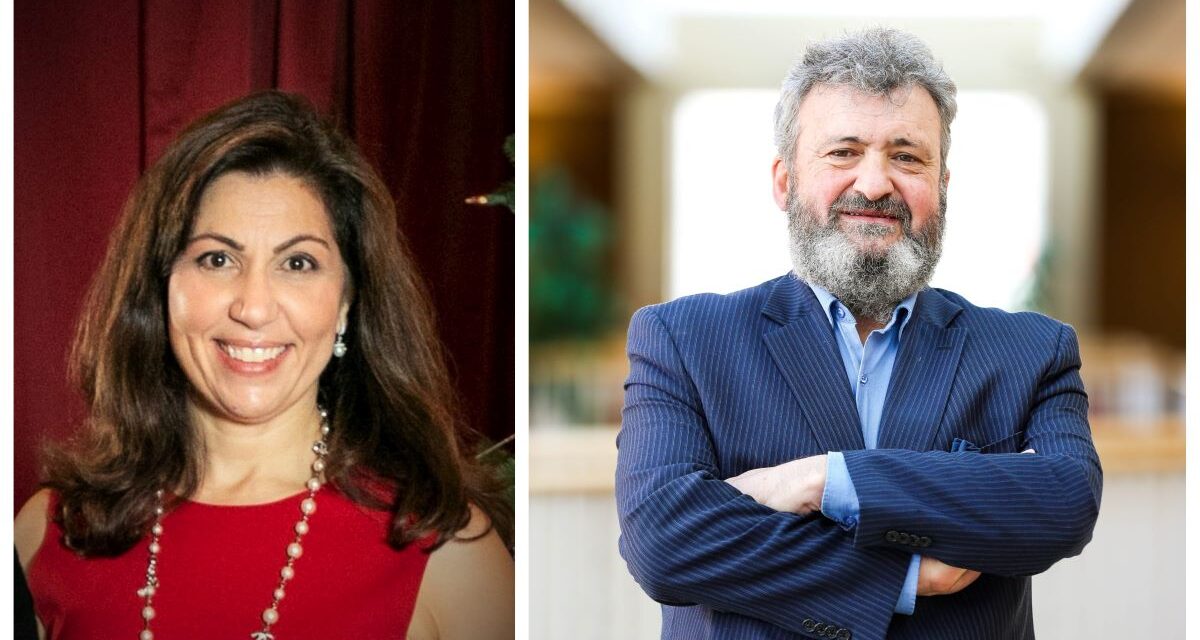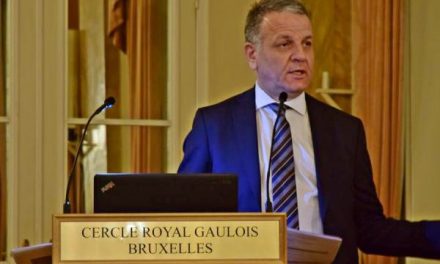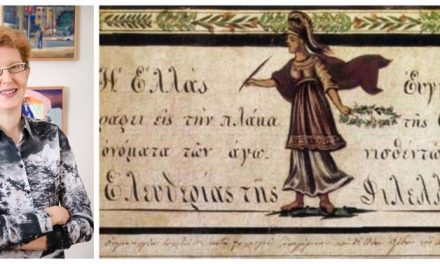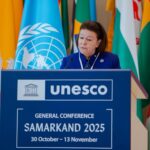Katerina Lagos is Professor of History at California State University, Sacramento (CSUS), USA. Her interests are focused on the interwar Greece, minorities, and the Metaxas dictatorship, and her more recent publication is The Fourth of August Regime and Greek Jewry, 1936-1941 (2023). Vangelis Calotychos is Visiting Associate Professor in the Department of Classics at Brown University, where he teaches courses in comparative literature, cultural studies, and reception studies. His most recent monograph, The Balkan Prospect Identity, Culture, and Politics in Greece after 1989 (2013) has won the Edmund Keeley Prize.
Professors Lagos and Calotychos are the President and Executive Director respectively of the the Modern Greek Studies Association (MGSA) an international organization that fosters and advances Modern Greek Studies in North America. Connecting scholars, educators, and students worldwide, the MGSA fosters interdisciplinary research, dialogue, and collaboration. It organizes conferences, publishes the Journal of Modern Greek Studies, and supports academic initiatives in the field. This October, the MGSA’s 28th international symposium, took place at Princeton University, gathering modern Greek scholars from around the world to explore contemporary topics in modern Greek studies and share cutting-edge research on Greece’s history and society.
Professors Lagos and Calotychos spoke to Rethinking Greece* on Modern Greek Studies Association’s mission and activities, the multi- and inter-disciplinary aspect or Modern Greek Studies, the growth of interest in Diaspora studies and in the Greek Diaspora , the era of Metapolitefsi, reading neo-Hellenism through the lens of postcolonial critique and finally, the opportunities and challenges in the field of Modern Greek Studies today.

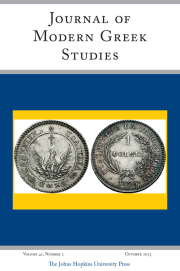
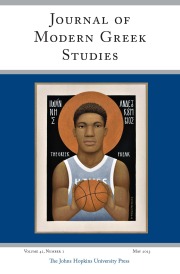
The MGSA symposiums have evolved significantly over the years, from focusing on modern Greek literature to examining themes like civil war, colonialism and migration. Could you walk us through MGSA’s history, mission and activities?
Katerina Lagos: The first MGSA symposium was focused on Greek language and literature and was also held at Princeton University (coincidentally where the 2024 symposium was just held). The title of the symposium was “Modern Greek Literature and its European Background.” Since then, the MGSA has taken on quite controversial topics. One of the leading symposia occurred in 1978 at The American University (Washington, D.C.) with the title “Greece in the 1940s”. The symposium focused on the Greek Civil War and broke new ground on this highly contentious and politically charged topic. At the time, this topic was not discussed at Greek universities so having the MGSA take on the Civil War was quite bold. Since then, the MGSA has explored a wide variety of controversial and less-controversial topics in a growing array of scholarly disciplines. The diversity of presentation topics is welcome in the association, and this is reflective of the expansion of scholarly disciplines that have emerged.
Vangelis Calotychos: Since 1995, the MGSA’s biennial symposium has been open theme. In other words, our Program Committee welcomes abstract proposals from scholars presenting their current research in all areas of Modern Greek Studies, though we also highlight each symposium certain topical, pressing, or commemorative themes. This year, for example, fifty years since the Turkish invasion in Cyprus, our keynote address was delivered by Professor Elizabeth A. Davis, anthropologist from Princeton, who focused “On the Uses and Abuses of a History of Conflict: Context & Recursion in Cyprus, 2024.” In all, our recent symposium hosted by the Seeger Center for Hellenic Studies at Princeton featured over 160 speakers representing multiple disciplines and speaking on a wide array of topics. The strength of our field has always been its multi- and inter-disciplinary aspect. In keeping with our strong desire to support graduate students, adjunct lecturers, and junior scholars from outside North America, the MGSA joined the host institution and other sponsors to offer financial assistance to 45 graduate students and over 20 scholars, many from Greece and Cyprus. For many, after covid, it was their first international, in-person conference.

This year marks the 50th anniversary since the fall of the military junta and the restauration of democracy in Greece. The concept of the “Metapolitefsi” and its impact on Greek society and culture was central to many discussions in the 28th MGSA Symposium panels. How do you think the cultural and political shifts of the post-junta period continue to shape contemporary Greece?
KL: It was rewarding to see so many panels focusing on the “Metapolitefsi” and its legacy on Greek society and politics. For over two decades, the immediate impact of the post-junta period dominated the historical narrative. From Andreas Papandreou’s “America out” to banning the police from entering universities, this was a period of reaction to the events of the junta and post-Civil War period in Greece. Certain aspects of the period have remained in place – such as the banning of the military in politics and the legalization of the KKE – that are a positive development in the country’s evolution. The PASOK years also reflect this reaction and much of the social legislation is reflective of this: separation of church and state, full legalization of abortion, etc. However, as much as the 1970s-1990s represent this reaction, I think that Greek economic crisis (2009-2015) has changed the paradigm of politics and has led Greece to a new chapter in its history. Both the Metapolitefsi and post-junta period can now be analyzed critically and less polemically.
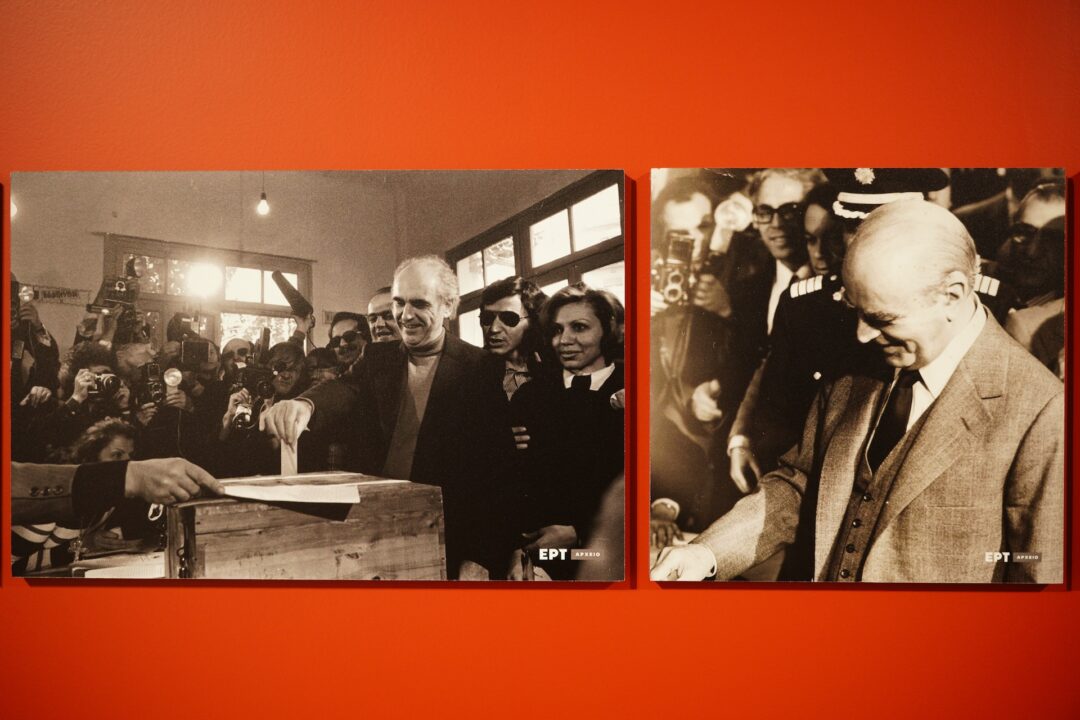
Some of the panels of the Symposium concentrated on the transnational and diasporic studies, a field that has seen significant growth. What is the contribution of this diasporic studies to our understanding of Greek diasporic/global identity? What new directions do you see emerging in the way Greek communities abroad are understood and represented?
KL: In the past, diaspora studies have typically presented Greek emigration as a one-way movement with Greeks embarking to destinations around the world. Scholars have sought to identify, explain, and compare these communities. One of the challenges in recent years was to establish a clear definition of the term Greek diaspora. More recently, the phenomena of Greeks returning to Greece has added a new layer of complexity to this issue. There has been a growing interest in diaspora communities beyond that of the United States, Canada, and Australia. Greater attention needs to be given to Greek emigration to sub-Saharan Africa. The Greek immigrants did very well financially as they established companies and brought technical expertise to these African countries.
VC: This interest in the Greek diaspora has steadily grown since the early 2000s. Our Transnational Studies Committee has steadfastly updated and curated a Greek American Studies Research portal that lists and describes research, activities, and resources in the field of Greek American Studies. Notably, three consecutive recent winners of our MGSA Karagiannaki Edited Book Prize have been focused on Greek American diaspora issues. Meanwhile, our Transnational Committee is broadening its base by strengthening collaborative work undertaken by Modern Greek Studies programs globally. To this end, a fund for the support of initiatives in Modern Greek Studies—the MGSA Innovation Fund—is open to members representing academic programs and nonprofits worldwide, and not only in north America. Lastly, we have just advertised a new grant supporting research in Greek American Studies, the The Harry J. Psomiades Research Grant.
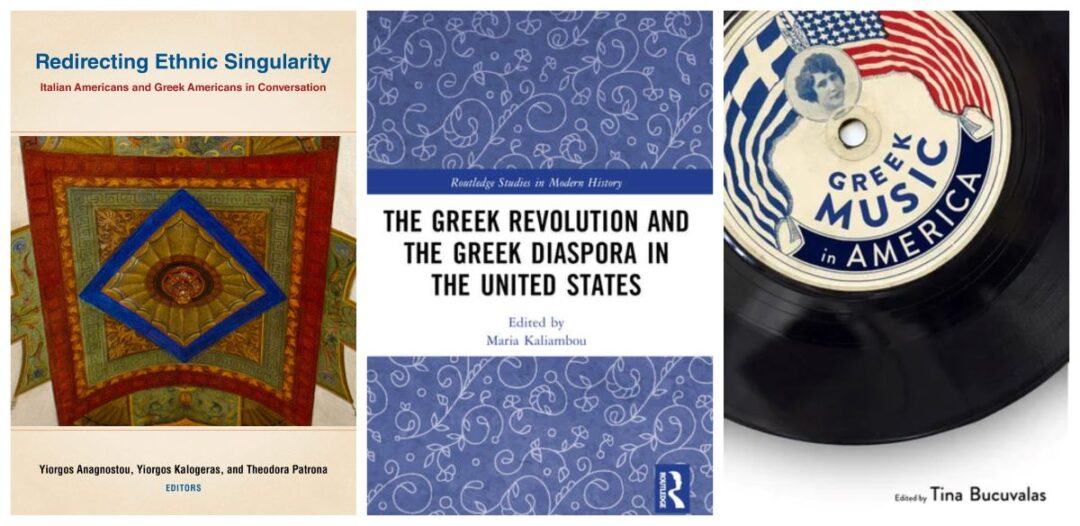
Post-colonial critique, such as professor Herzfeld‘s “crypto-colonialism” concept and professor Hamilakis’s call to “decolonize archeology” is an increasingly strong trend in modern humanities. In the MGSA symposium you featured a panel on the project “Decolonize Hellas.” Could you tell us more about how post-colonial theory informs modern Greek studies and what are the themes this approach touches upon?
VC: Yes, a session on the “Decolonize Hellas” initiative was one of four special, lunchtime sessions at this year’s symposium. In fact, there was one on global diaspora led by our Transational Committee. Typically, special sessions showcase topical issues and initiatives in our field and guarantee more time for discussion with the audience. The speakers included leading figures from the Decolonize collaborative that has inspired a slew of programs, panels, and publications that address and interrogate the colonial genealogies underlying pressing, though often marginalized, issues in Greek society and beyond: orientalism, Balkanism, xenophobia, homophobia, racism, and sexism:
Previously the general impetus for reading neo-Hellenism through the lens of postcolonial critique had emerged from work in the United States in the 1990s and later from the contributions of colleagues such as Herzfeld and Hamilakis. During the sovereign debt and migration crisis, talk of Greece as a ‘colony’ of one sort or another became commonplace; and the derogatory resonances of such talk, much of it emanating from Europe, called for a renewed reflection on western civilizational models. The collaborative emerged at around the time of celebrations marking the bicentennial of the Greek Revolution. And, in contrast to much scholarship from that time, the Decolonize Hellas group was inspired by the crisis within Europe, decolonial theory, studies of racial capitalism, and movements stirred by the Black Lives Matter protests in the States and other emancipatory, anti-colonial calls for social justice worldwide.
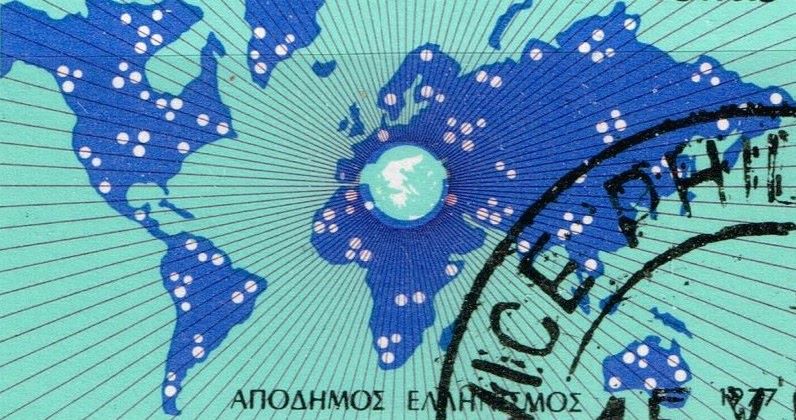
How does the integration of different academic fields such as gender and media studies impact and redefine the scope of Modern Greek Studies? Could we say that interdisciplinary approaches are among the emerging trends for Modern Greek Studies in the North American academic landscape?
KL: The integration of different academic fields is something that is reflective of the general changes and progressiveness in university education. The traditional disciplines have made room for new academic centers and area studies. As gender studies and media studies take on greater prominence in university education, then it is only logical that Greece and the Greeks would be included in their topics of scholarship.
Looking ahead, what do you see as the biggest challenges and opportunities for the field of Modern Greek Studies? With the challenges facing humanities how can Modern Greek Studies ensure its relevance and attract both academic and public interest?
KL: One of the more recent challenges that Modern Greek Studies faced was the association of our field as an outdated, narrow, or white hegemonic area of academia. It is unfortunate to see this perception – more correctly, misperception – especially in light of the various aspects that Greek studies can be analyzed and understood. Greek studies is unique as it combines both the ancient and the contemporary. An example of this can be seen in migration studies, environmental studies, gender studies, etc. Modern Greek Studies brings the past to the present and is far more dynamic and relevant than it typically understood. The MGSA’s advocacy of newer academic fields and areas of scholarly interest helps reinforce the timeliness and relevance of Greek studies.
*Interview to Ioulia Livaditi
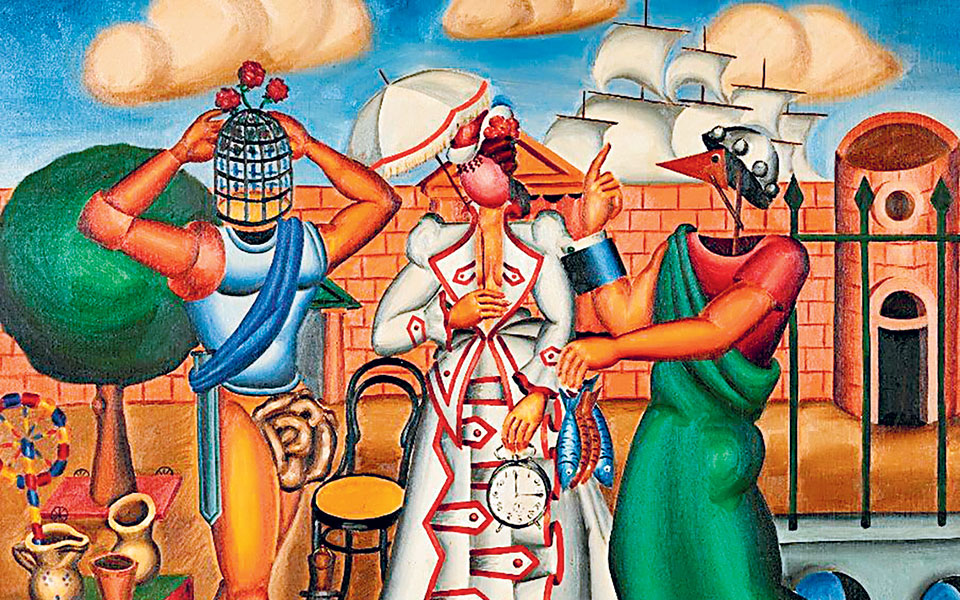
Read more from Rethinking Greece
- Michael Herzfeld on Modern Greece, comparative research and the future of Anthropology
- Roderick Beaton: “Europe is unthinkable without Greece”
- Yiorgos Anagnostou on Greek America, Greek American studies and the diasporic perspective as syncretism and hybridity
- Professor Gonda Van Steen on her lifelong fascination with all things Greek
- 50 years of Modern Greek Studies Association
- 100 years from the founding of the Koraes Chair at King’s College, London
TAGS: EDUCATION | MODERN GREEK STUDIES

